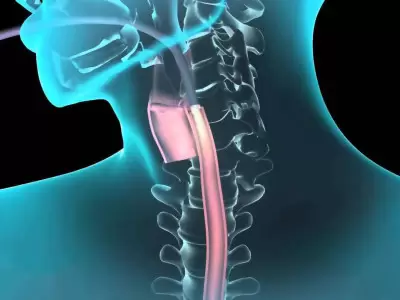Head and Neck

Reflux Disease
If this acid leak reaches the esophagus, it is called gastroesophageal reflux (GER), and if it reaches the throat, it is called laryngo-pharyngeal reflux (LFR).

Reflux Disease in Children
GER, that is, the return of the stomach contents towards the esophagus, is a frequently observed situation, but this acidic content comes out of the esophagus and into the throat and upper respiratory

Salivary Gland Stones
Calcium deposits in the salivary gland tissues or the secretion ducts are called salivary gland stone or sialolith; and stone formation in the salivary glands are referred to as sialolithiasis.

How to Treat Salivary Gland Stones
The first stage in the diagnosis of salivary gland stones is the assessment of the story given by the patient.

How to Diagnose Salivary Gland Stones
If patients diagnosed with salivary gland stones have symptoms such as swelling of the glands accompanied by pain, fever, purulent discharge into the mouth, redness and tenderness on the skin in the s

Sialendoscopy
The procedure that involves imaging inside of the ducts of the salivary glands by using very small camera systems (endoscopes), through their openings in the mouth is referred as "Salivary gland endos

Salivary Gland Diseases
Salivary glands are classified in two groups as major and minor glands. At the both sides, the parotid salivary glands (in front of and below the ear); the submandibular salivary glands (below the low

Hoarseness
All changes in normal voice quality are generally defined as hoarseness. Different symptoms occur with different pathologies, such as air leakage between the vocal cords during speaking, change in the

Head and Neck Masses in Children
Masses in the head and neck region are basically divided into two groups: benign (benign - non-cancerous) and malignant (malignant - cancer).


